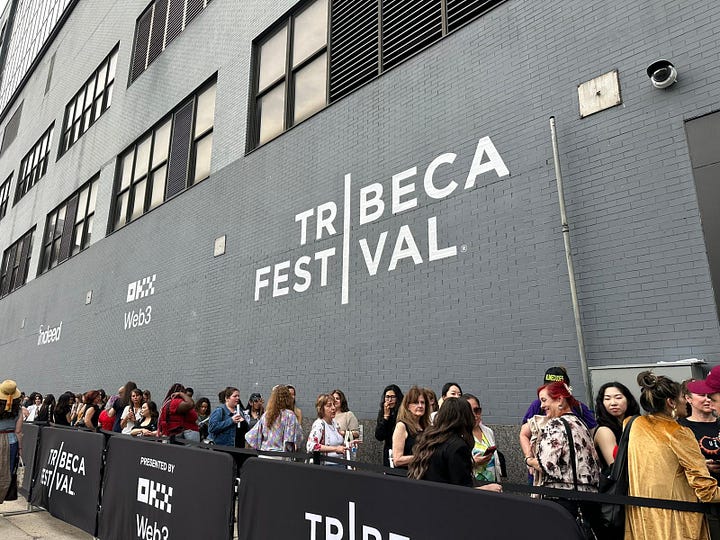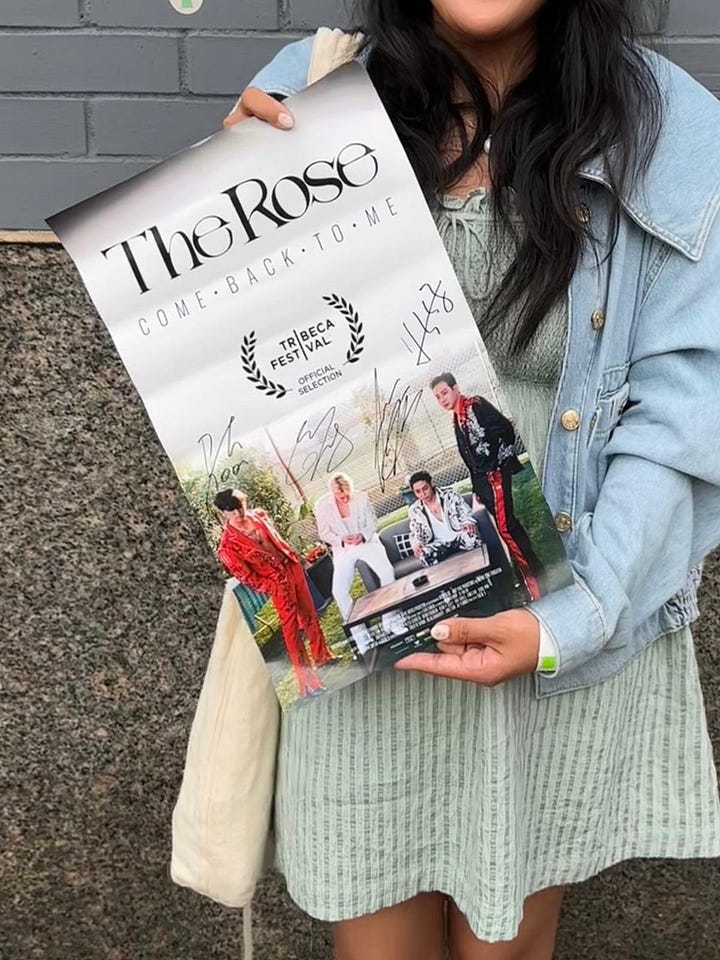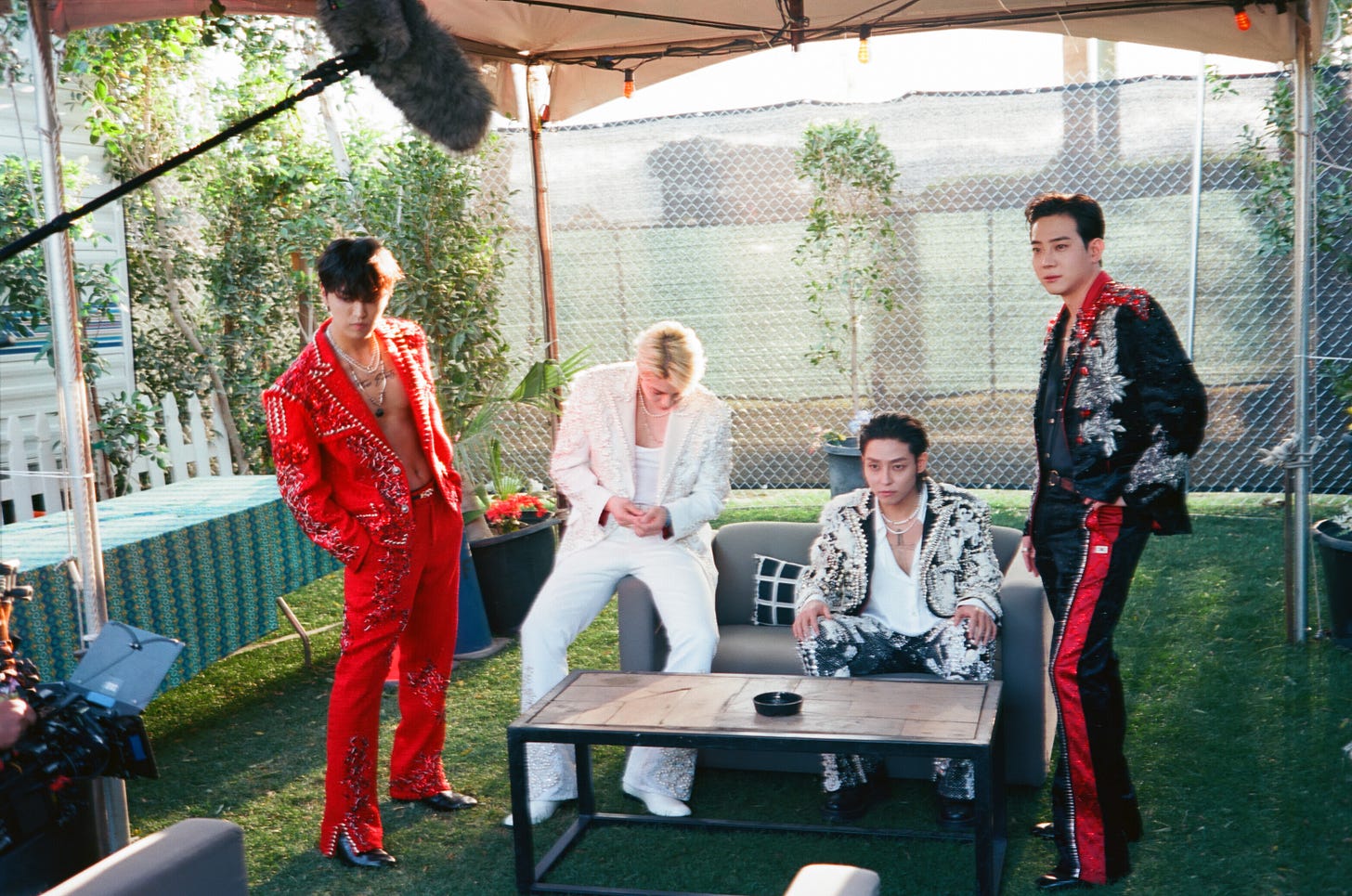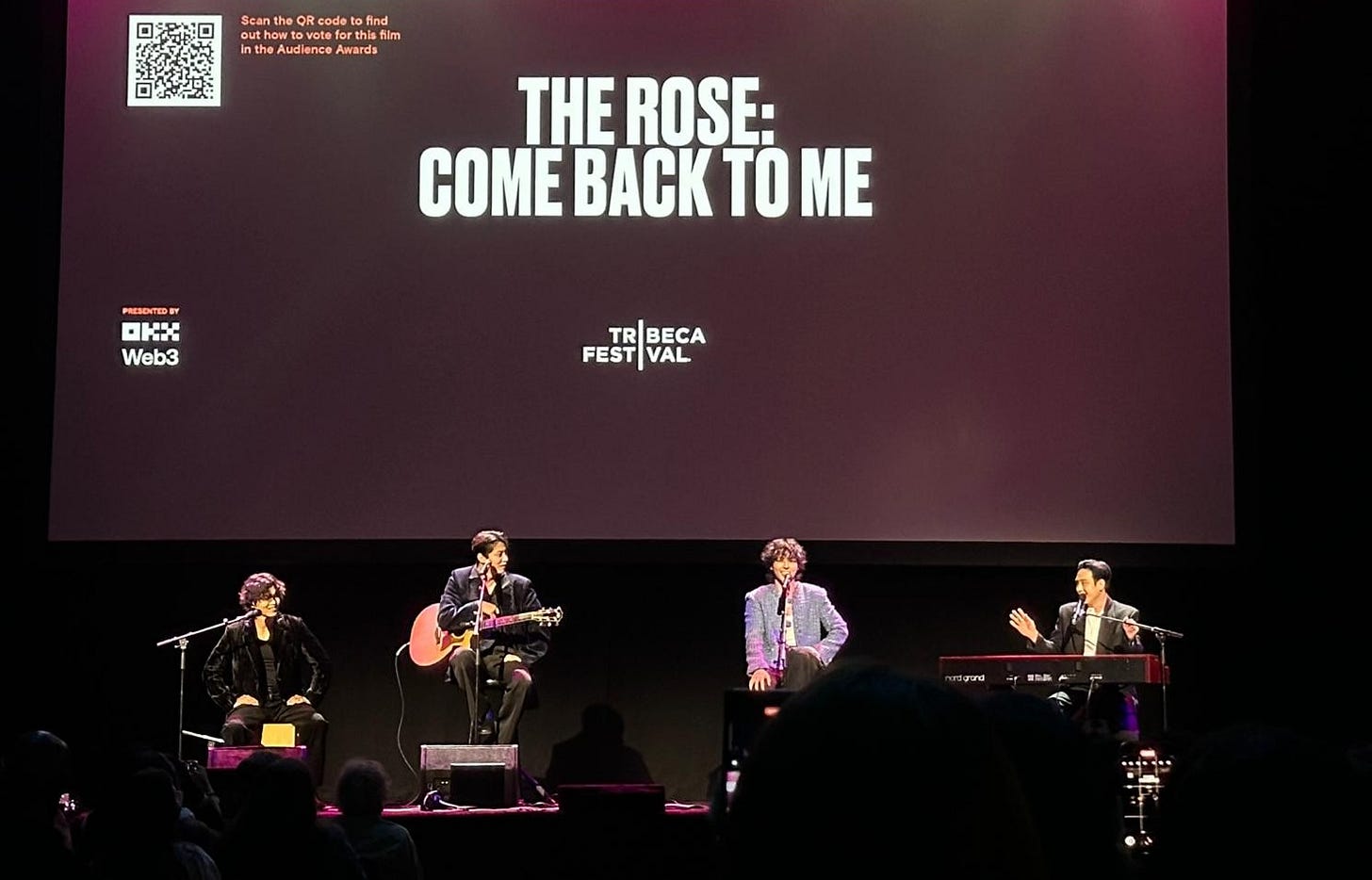The Rose and The Thorn
From dropping out of the K-pop system to selling out arenas, The Rose: Come Back to Me traces the unlikely rise of a Korean rock band. (Tribeca Festival Review)
The Tribeca Festival wrapped up over the weekend, with a supremely overwhelming lineup of 120+ feature films and a flotilla of shorts that screened throughout Manhattan over the past week and a half. That doesn’t even include the video games, podcasts, and branded content that also make up the festival (which dropped the “Film” part from its name in 2020). It can be tough to find the gems in such a wide-ranging array of movies, but there were some worthwhile titles.
True to form for me, I’m still working through my writing backlog, both for Tribeca and some dispatches from my latest travels. For now, here’s a review of a documentary about the K-pop trainees who formed a rock band and sought to break the conformity of the Korean music industry, with a report from a friend who attended the premiere screening!
The Rose: Come Back to Me
Seeking distribution.
The lineup for this year’s Tribeca Festival boasted a large number of documentary profiles of famous musicians. While Korean rock band The Rose isn’t as well-known as the likes of Billy Joel or Metallica or Miley Cyrus, they have no less passionate a fanbase, and their underdog story is compelling enough that this documentary about their bumpy road to success doesn’t feel too much like branded content. Unlike typical boy bands like BTS or One Direction, The Rose wasn’t assembled by a management team, they play their own instruments, and write their own songs. But they’re not a typical rock band, either. The four boys—Sammy, Leo, Dylan, and Jeff1—were dropouts from the K-pop industry’s grueling trainee system, one of whom likened the experience to professional sports. Their matinee idol looks and distinctive personalities give something that fans can latch on to; the bassist is perhaps the most charming of the bunch. This duality also applies to their music, which melds melodramatic balladry common to K-pop with arena-ready soft rock akin to Snow Patrol and The Script.
The Rose: Come Back to Me employs the typical form of these music bio-docs. Intimate footage and interviews are mixed to tell the artist’s narrative, with dynamic performance scenes keeping things lively. The film’s director, Eugene Yi, dutifully chronicles the band’s history, from busking on the streets of Seoul, to their initial momentum derailed by legal battles with their label and Korea’s mandatory military service, to a comeback assisted by members of the one-hit wonder rap group Far East Movement2. It culminates in The Rose’s biggest triumph to date: selling out The Forum in Los Angeles and booking a spot at Coachella. Both longtime fans and viewers unfamiliar with the band will be inspired by their resilience and moved by their vulnerability.
Yi doesn’t fully transcend the format of these artist-approved bio-docs (their managers are credited as executive producers), but through the band’s struggle to gain a foothold in their native Korea, he makes an implicit critique of Korea’s cultural conservatism. The Rose’s first record label didn’t know what to do with a group that wanted to play outside of the K-pop system, and the relationship between them collapsed despite burgeoning success. A second attempt at breaking into the Korean pop industry goes awry after tabloids dredge up Sammy’s teenage arrest for marijuana use, a serious taboo there. After that controversy, they fully shifted their attention to the international market. Like most K-pop, their earlier work was chiefly sung in Korean, with a handful of English phrases peppered in. The lyrics of the new songs are entirely in English.
While The Rose doesn’t need validation from those institutions, there seems to be some extant bitterness. “Back to Me,” the raucous pop rock tune that gives this film its title, initially scans as a kiss-off to a former lover (“I can make you mad / I can make you scream… / But I can't make you come back to me.”) But I think the song is about a different kind of relationship, the one the band has with the K-pop system that birthed them. Is it possible that the Korean music industry is coming back around to The Rose, or vice versa? While the band is currently independent, one of the producers of this documentary is Hybe America, a subsidiary of the Korean label that counts BTS and Seventeen among its signees. As Sammy sings in the second verse, “I remember thinking, I don't need you / But then time passed by and it's so untrue.”
A Fan’s Perspective
I did not know about this band’s existence until coming across the film, but I’m glad that it introduced me to their work and their story! “Back to Me” is an absolute tune, as is “She’s In the Rain.” One of my friends has been a longtime Black Rose (the group’s nom de fandom) and attended the sold-out premiere. Here’s Liane’s report, which I’ve edited and condensed:
The line outside was crazy! The people in the front got there at 11 AM. One of the guys from Far East Movement was walking around the line with a poster signed by The Rose and told us to play rock paper scissors. I won 🫨😍 After the Q&A session, The Rose played four songs, two of them from their new album!
As a decently invested fan, I had a general idea of the band’s story. But after the documentary I feel like I got to know the members a lot more. I really liked how it wasn’t just focused on last year’s tour, but really told their story as a band as individuals, especially before they met each other. It’s definitely a treat for fans, especially seeing their early days, but I think it’s still enjoyable for people new to The Rose because a lot of their songs are bangers and the members were real about the challenges they faced and were vulnerable in front of the camera.


She had a much better experience compared to another friend who attended the premiere of Something Beautiful, the visual component to Miley Cyrus’s new album of the same name. This is what Jen had to say about it:
Oh my God. It was the worst audience I’ve ever been a part of. During any minor gap of silence during her Q&A, the audience kept screaming, “Sing for us! We want you to sing!! Sing!!!” She eventually caved and sang a bit of “The Climb,” and it’s amazing how composed she stayed and seemed pretty genuine when she expressed being really happy to be there with the audience and feeling the energy in the crowd.
You probably want to hear about the visual film itself. It was very ✨artsy✨ like something you’d see at the MoMA. Ultimately it felt like a mishmash of music videos. The moderator asked very boring questions and failed to take it any deeper. I still had a good time watching the film though!
Yikes!!!
Fans of the band refer to the members by their Korean names, but the film uses their English ones.
Trigger warning: “Like a G6” needle drop.






